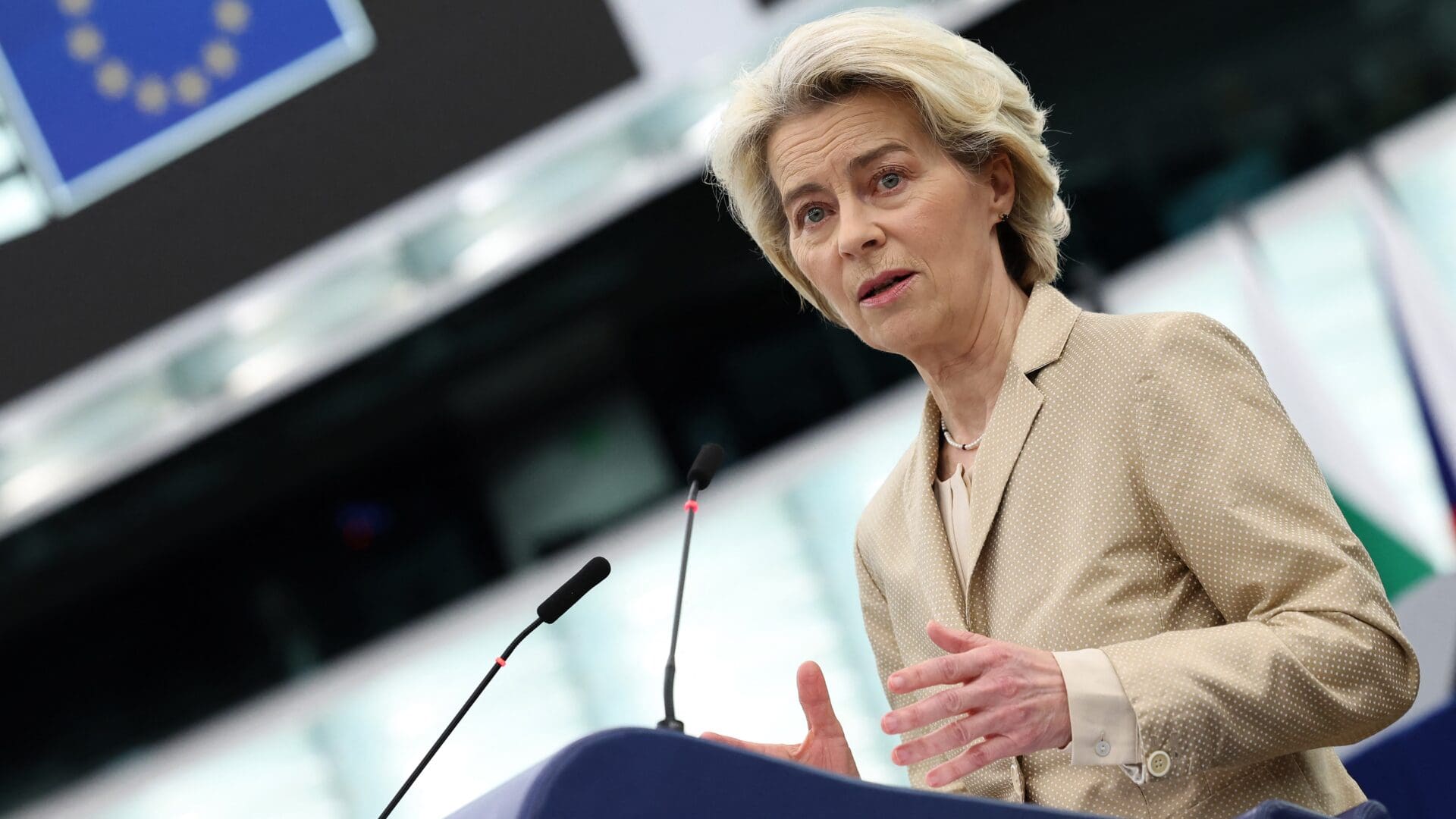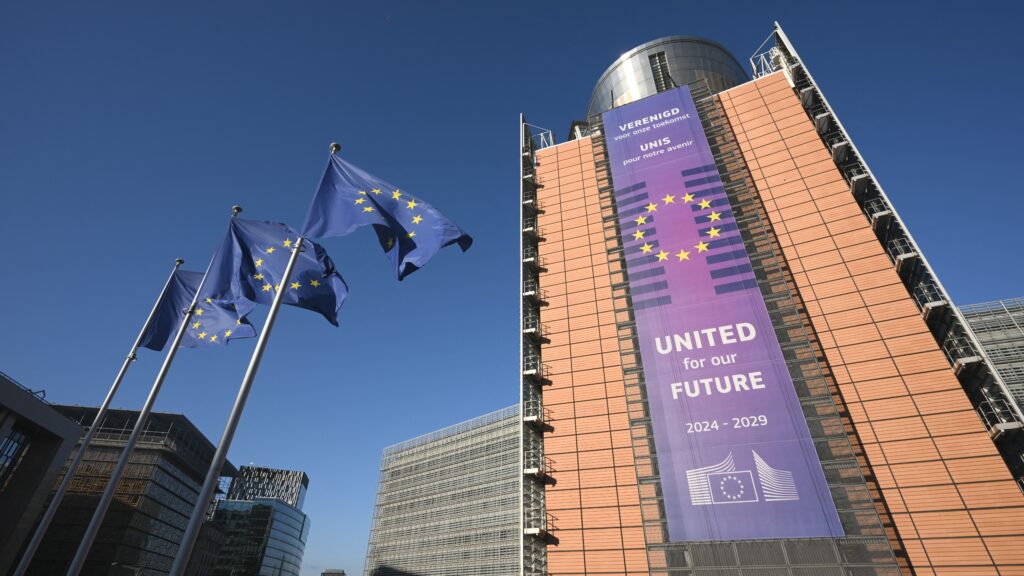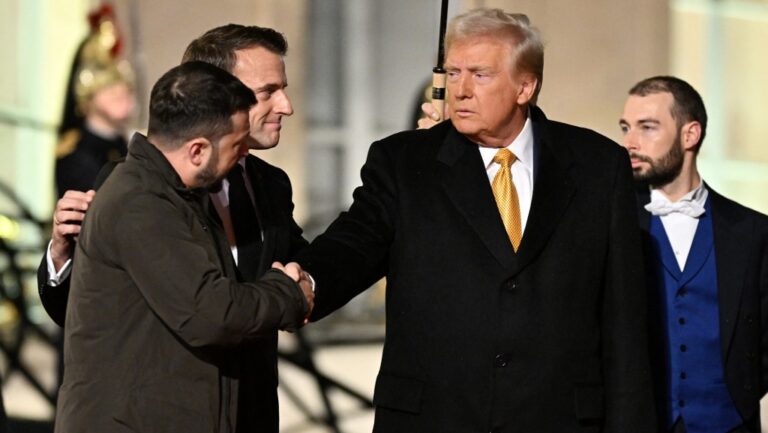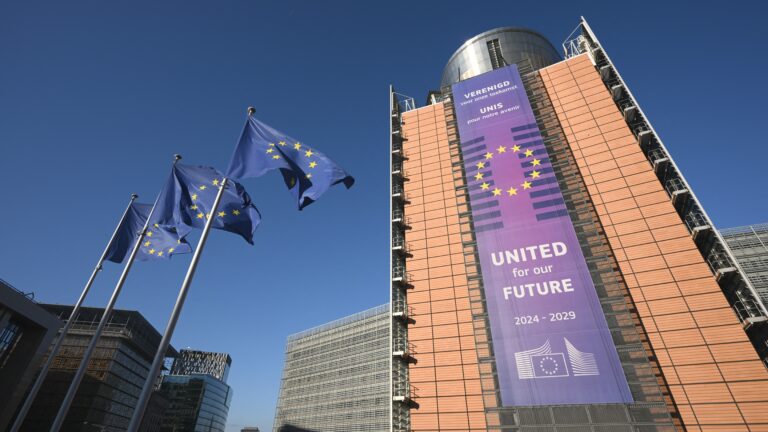‘At the same time, around EUR 20 billion [from the EU funds Hungary is entitled to] remain frozen. They are suspended for reasons that include concerns on LGBTIQ rights, academic freedom and asylum rights,’ Ursula von der Leyen stated during the European Parliament’s plenary debate on Hungary. The President of the European Commission made an unexpected admission while defending the Commission’s decision to release €10.2 billion in cohesion funding for Hungary last December in front of disgruntled left-wing MEPs. According to her, the €22 billion in EU funds owed to Hungary by Brussels is not being withheld due to concerns about the rule of law or the independence of the judiciary. Instead, the funds rightfully owed to Hungary have been frozen because the Hungarian government refuses to align with the Western mainstream on gender propaganda and migration policy.
In a Twitter post, Balázs Orbán reacted by stating that the Commission President admitted that the funds due to Hungary were being withheld as a punishment for the country resisting gender propaganda and fighting migration. The political director added: ‘I really wonder if this is the Europe the Founding Fathers would be pleased to see.’
Balázs Orbán on Twitter: “Earlier today, @vonderleyen admitted at the @Europarl_EN that Brussels is withholding EU funds from Hungary bc we are fighting against migration and protecting our children from gender propaganda. Instead of helping Member States in addressing the economic consequences of the war… pic.twitter.com/lRdZbWtDmU / Twitter”
Earlier today, @vonderleyen admitted at the @Europarl_EN that Brussels is withholding EU funds from Hungary bc we are fighting against migration and protecting our children from gender propaganda. Instead of helping Member States in addressing the economic consequences of the war… pic.twitter.com/lRdZbWtDmU
The various proceedings that are currently ongoing against Hungary are numerous and somewhat confusing, so it is worth looking at what those are one by one and which involve EU funds.
In chronological order, the first is the Article 7 procedure initiated in 2018 at the behest of the European Parliament. At its conclusion, Hungary could potentially lose its voting rights in EU decision-making. However, it’s important to note that the disbursement of funds will not be affected by this procedure. According to János Bóka, the minister responsible for EU affairs, this is a purely politically motivated procedure, as he explained in an interview with Hungarian Conservative.
Subsequently, the Commission introduced the conditionality—rule of law—mechanism after the Hungarian parliamentary elections in April 2022. This is closely associated with funds from the Recovery and Resilience Fund and the Cohesion Fund, both of which the Commission chose to freeze in November and December 2022.
To comprehend the current situation, it is essential to revisit the inception of the extended and occasionally contentious history involving Hungary, Brussels, and EU funds, dating back to May 2021. During that period, the Hungarian government presented its proposal to the European Commission for economic recovery following the coronavirus epidemic.
Hungary was to receive €15.4 billion from the EU's Recovery and Resilience Fund, with a portion allocated as a loan, while approximately €5.8 billion in grants.
Although the Commission had a two-month window to endorse the government's plan, concerns were raised from the beginning,
even though matters related to LGBTIQ rights and migration policy had not yet become focal points.
After over a year of intensive negotiations, the Commission finally granted approval to the Hungarian recovery plan in November 2022. However, the disbursal of funds was contingent upon judicial reforms and progress in the battle against corruption. In this context, the Commission tied the disbursal to the accomplishment of 27 so-called ‘super milestones.’
Simultaneously, the Commission requested member states to freeze a portion of the cohesion funds rightfully allocated to Hungary, amounting to approximately €6.35 billion. The ministers of the member states consented to this freeze, contingent upon the fulfilment of 17 conditions. These conditions are categorized as ‘rule of law concerns.’
It is crucial to highlight that there is a substantial overlap between the aforementioned super milestones and the rule of law conditions.
Nevertheless, the Commission took a unilateral decision to freeze all cohesion funds totalling approximately €22 billion without consulting the member states. This decision was made autonomously by the Commission, employing the wonder-weapon of the so-called enabling conditions.
There are two types of enabling conditions: horizontal, which suspend all payments, and vertical, which apply to specific operational programmes. The vertical enabling conditions impact a total of €2.7 billion, while the horizontal enabling conditions affect around €13 billion.
The Hungarian government fulfilled the horizontal enabling conditions in May 2023.
This was achieved after then Justice Minister, Judit Varga, collaborated closely with Justice Commissioner Didier Reynders to formulate the necessary judicial reforms within the Hungarian legal system, aligning it with the directives from Brussels.
Subsequently, Brussels kept sending clarification questions as a strategy to postpone the disbursement of the funds owed to Hungary. However, by December of the previous year, the Commission had to take action. They officially declared that Hungary had satisfied the conditions, confirming the efficacy of the implemented judicial reforms. Consequently, the Commission announced the release of €10.2 billion in previously frozen cohesion funds.
Fulfilling the horizontal enabling conditions could be regarded as a prerequisite for accessing all EU funds except agricultural funds and advances. By having met these conditions, Hungary has taken a significant step toward unlocking the €6.35 billion of Cohesion Fund and recovery funds currently held under rule of law conditionality.
The problem is that Brussels tends to come up with ever newer conditions. That's why Ursula von der Leyen's speech on 17 January practically signalled that the introduction of gender propaganda in schools and kindergartens, as well as a change in migration policy were in fact conditions of Hungary receiving any further funding.
The contested Child Protection Act was passed by parliament on 15 June 2021, with the objective of preventing harmful gender propaganda from reaching children and prohibiting the activities of gender lobby groups in kindergartens and schools. Critics of the law argue that certain provisions discriminate against members of the LGBTQ community. In July, the Commission initiated infringement proceedings against Hungary regarding the law and referred the case to the European Court of Justice in December 2022.
As for Hungary's migration policy, it has consistently faced criticism for its firm opposition to illegal immigration, a stance sharply contrasting with the left's policy of open borders. The adverse consequences of the latter approach are already evident from Sweden and France and Germany and Belgium. However, Brussels appears to be adhering to its outdated and misguided policy, as evidenced by the adoption of the new Migration Pact by member states' interior ministers last summer. The pact imposes a mandatory migrant quota on member states, with the threat of significant fines for non-compliance.
The decision to include these issues among conditions for the release of frozen funds is largely attributed to the
significant influence of the left-wing majority in the European Parliament.
Over the years, the European Parliament has criticized Hungary through numerous resolutions and decisions, specifically targeting its migration policy and efforts to curb gender propaganda. While the European Parliament lacks the direct authority to impose conditions on the disbursement of EU funds to Hungary, it possesses the capability to exert substantial pressure on the Commission to take such actions.
In recent weeks, this pressure has escalated to the extent that the Commission has faced threats of legal action concerning the €10.2 billion earmarked for Hungary. The arguments against Hungary have long been in circulation, asserting that the country is disregarding the rule of law, misusing EU funds, and should not receive any financial support due to perceived high levels of corruption.
At present, it appears that there is
no way the Hungarian government will ever be able to meet the continually expanding ‘rule of law conditions’,
used as a quasi-blackmail tool against it. What may be a game changer in the current stalemate is the European Parliament elections in the summer.
Shifting the balance away from a left-wing majority could pave the way for more pragmatic cooperation between Hungary and Brussels, which could lead to the disbursement of EU funds to Hungary based not on ideological considerations but on tangible results achieved through effective collaboration.
Related articles:







